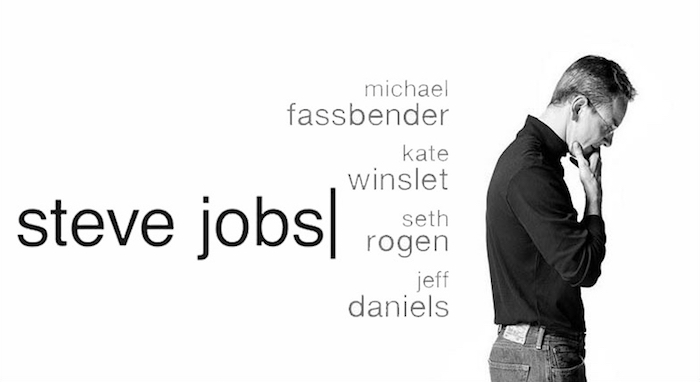Steve Jobs, film review: Backstage at a three-act play


Steve Jobs • Directed by Danny Boyle • Screenplay by Aaron Sorkin • Sony Pictures, 2015
Do you care about facts? How you answer that question will largely determine how many of the recent wash of movie recreations of real-life stories you're willing to see. The Program was reasonably true to David Walsh's 13 years of chasing Lance Armstrong's guilt; 2010's The Social Network rather less so. For that movie, screenwriter Aaron Sorkin used as his source material The Accidental Billionaires by Ben Mezrich, a book also criticised for its imaginatively sensationalist qualities. Sorkin's central conceit, that Mark Zuckerberg created Facebook out of pique because a smart-ass girl slapped him down, is certainly false: while creating Facebook Zuckerberg was already dating Priscilla Chan, whom he later married.
For Steve Jobs -- first released in October last year and about to become available on DVD -- Sorkin starts with better base material: Walter Isaacson's widely praised, thorough, meticulously documented biography, plus interviews with Jobs's oldest daughter, Lisa Brennan-Jobs, who declined to speak to Isaacson while her father was alive. Isaacson's 630 pages recount a life that Lady Bracknell would surely have thought rather too crammed with incident. But how do you cram all that into a movie somewhat shorter than 2010's The Clock?
A three-act play
Sorkin's answer was to ignore F. Scott Fitzgerald's encomium that "There are no second acts in American lives" and fashion a three-act play. Act One: the 1984 launch of the Macintosh, which the movie dubs a failure. Act Two: the launch of the NeXT, which we can all agree to call a spectacular failure. Act Three: the launch of the iMac, which began Jobs's long run of triumphs.
We don't actually see any of the launches. We see the setup, the psyched-up audience, the press, Jobs's ballsy but eternally frustrated assistant, Joanna Hoffman (Kate Winslet) standing up to her bullying boss, and Jobs himself (Michael Fassbender), usually berating someone-or-other to make things work the way he wants.
Sorkin's Jobs gradually mellows, partly because his crew gets better at meeting his demands ("We've got the exit signs to black out for five seconds!" one tells him at the iMac launch), and partly because of the tough love of two good women: Brennan-Jobs (Mackenzie Moss, Ripley Sobo, and Perla Haney-Jardine), whose paternity he initially denied but later accepted, and, of course, Hoffman (although, as she also tells him when he asks why they've never slept together, "We are not in love").
All these characters are composites and dramatic constructs devised to serve the screenplay, not to provide facts. So much is omitted: Jobs's wife since 1991, Lauren Powell, and their children; Apple's 500-day CEO Gil Amelio; Jobs's cancer and medical intransigence; the iPhone; the iPad; key Apple designer Jony Ive; Pixar. Equally, so much is included as dialogue asides that you wonder how anyone not steeped in Apple history can follow it.
The TV show Friday Night Lights pulled off showing process but not result rather well: many of its partially shown football games ended off-screen because what mattered was taking part. The design doesn't work so well here, because no-one really takes part. Instead, what you get is endless two-person wrangles over Apple and personal history, with the only immediate stakes being whether Jobs will make it on-stage on time. The intimate prelaunch exchanges feature disputes with Steve Wozniak (Seth Rogen), Andy Hertzfeld (Michael Stuhlbarg), Jobs-replacement Apple CEO John Sculley (Jeff Daniels), and one or both of Brennan-Jobs and her mother, Chrisann Brennan (Katherine Waterston).
Jobs does not generally emerge well from these encounters, but that doesn't make them any more fun. Instead, unless you just love the sound of Sorkin's voice, the result is dull. Really, the most exciting moment in this movie is the showing of the famous 1984 Superbowl advert -- and you can see that on YouTube.